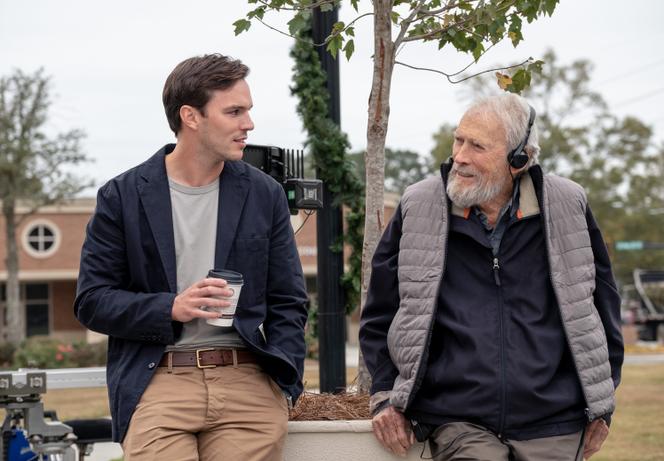


The great American filmmakers have always been obsessed with action, its determinants and its meaning. Clint Eastwood's cinema has perpetuated this pensive, poetic relationship, at a time when it no longer seemed like a done thing, when increased awareness of neurotic behavior had complicated what had long been thought of as the only way to exist: Through taking action. A time when dreams and utopias had drowned in prosaic, even ignoble reality, when the myth of the frontier, the cornerstone of a legend that was so well expressed by Westerns, had collapsed and the fantasies of yesterday had become ludicrous. Amid this context, the director of Million Dollar Baby (2004) has, from his earliest films, attempted to prolong some form of vanished classicism with restorative fictions like Bronco Billy (1980), Honkytonk Man (1982), The Outlaw Josey Wales (1976), Unforgiven (1992) and so many others.
The ambiguity that is a characteristic of the protagonist of his new film, Juror #2– who is simultaneously a vigilante and a guilty man – adds a new piece to the somewhat curious puzzle that the filmmaker has been building over the past several films. What is a film character, and above all, what meaning should we now give to that which has long been the essence of a Hollywood hero? In recent years, Eastwood's films have been inspired by real-life events, depicting the achievements of individuals, who are transformed into heroes by contemporary showmanship. American Sniper (2014) relates the prowess of a sniper, Chris Kyle, a soldier who won glory during the Iraq war.
Sully (2016) tells the story of an airline pilot crashlanding his failing aircraft on the Hudson River, saving his passengers' lives. The 15:17 to Paris (2018) chronicles a brave act performed by three American tourists wgo neutralized an armed terrorist on a train between Brussels and Paris. Richard Jewell (2019) shows how a security guard saved concert attendees from a bombing during the 1996 Atlanta Olympic Games – a savior who was later suspected of having been the bomber.
While each story could have been a comforting way of identifying with these characters, who are aware of their actions and driven by their will alone, instead, these films go to great lengths to question the protagonists' heroism, separating the result of their actions from the mechanisms that triggered them. Does Kyle, the sniper, go to war out of patriotism or to escape the more prosaic realities of his marital and family life? Why does he insist on re-enlisting regularly, if not because his home life had become unbearable? Doesn't the recurring moment, in which Kyle removes his wedding ring before taking a shot, symbolically reveal, beyond the functional necessity of the action, a deeper form of neurosis?
You have 38.87% of this article left to read. The rest is for subscribers only.
